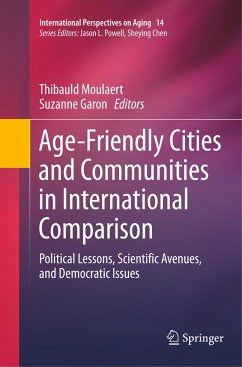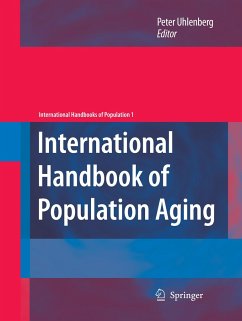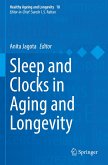The supportiverole of urban spaces in active aging is explored on a world scale in thisunique resource, using the WHO's Age-Friendly Cities and Community model. Casestudies from the U.S., Canada, Australia, Hong Kong, and elsewhere demonstratehow the model translates to fit diverse social, political, and economic realitiesacross cultures and continents, ways age-friendly programs promote seniorempowerment, and how their value can be effectively assessed. Age-friendlycriteria for communities are defined and critiqued while extensive empiricaldata describe challenges as they affect elders globally and how environmentalsupport can help meet them. These chapters offer age-friendly cities as acorrective to the overemphasis on the medical aspects of elders' lives, and shouldinspire new research, practice, and public policy.
Included in thecoverage:
A critical review of the WHO Age-Friendly Cities Methodology and its implementation. Seniors' perspectives on age-friendly communities. The implementation of age-friendly cities in three districts of Argentina. Age-friendly New York City: a case study. Toward an age-friendly European Union. Age-friendliness, childhood, and dementia: toward generationally intelligent environments.
With its balanceof attention to universal and culture-specific concerns, Age-Friendly Cities and Communities in International Comparisonwill be of particular interest to sociologists, gerontologists, and policymakers.
"Given the rapid adoption ofthe age-friendly perspective, following its development by the World HealthOrganization, the critical assessment offered in this volume is especiallywelcome".
Professor ChrisPhillipson, University of Manchester
Included in thecoverage:
A critical review of the WHO Age-Friendly Cities Methodology and its implementation. Seniors' perspectives on age-friendly communities. The implementation of age-friendly cities in three districts of Argentina. Age-friendly New York City: a case study. Toward an age-friendly European Union. Age-friendliness, childhood, and dementia: toward generationally intelligent environments.
With its balanceof attention to universal and culture-specific concerns, Age-Friendly Cities and Communities in International Comparisonwill be of particular interest to sociologists, gerontologists, and policymakers.
"Given the rapid adoption ofthe age-friendly perspective, following its development by the World HealthOrganization, the critical assessment offered in this volume is especiallywelcome".
Professor ChrisPhillipson, University of Manchester








